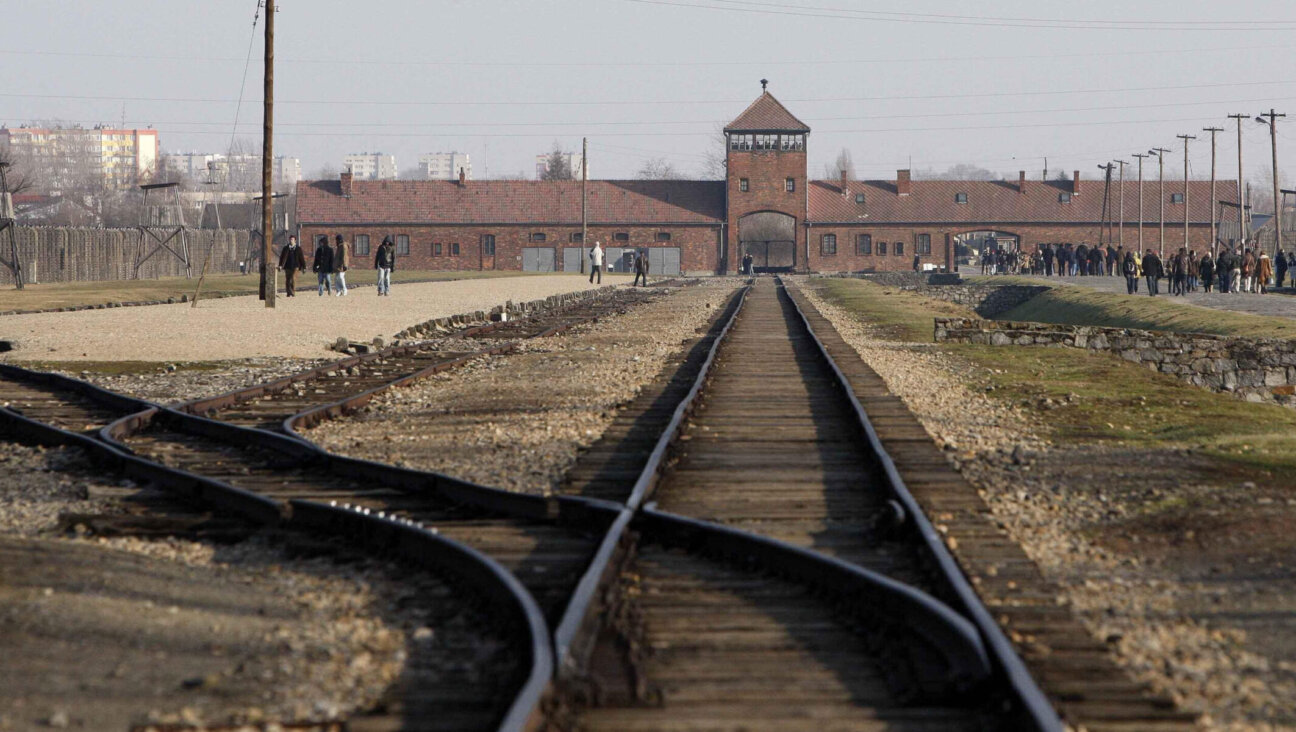Jewish federations come out against Netanyahu’s judicial reform in rare critique of internal Israeli politics
‘This concentration of power is a cause of great concern,’ wrote the CEO and chair of Jewish Federations of North America.

Israelis protest against the proposed changes to the legal system in Haifa, on February 20, 2023. (Shir Torem/Flash90)
WASHINGTON (JTA) — In a rare comment on internal Israeli politics, the umbrella organization for local Jewish federations is urging Prime Minister Benjamin Netanyahu to drop one element of his government’s controversial plan for judicial reform.
On Tuesday, the Jewish Federations of North America sent an open letter to Netanyahu and Yair Lapid, leader of the parliamentary opposition, opposing a proposed change that would allow a bare majority of Israeli lawmakers to override Supreme Court rulings. Israel’s parliament, the Knesset, has 120 seats, and one piece of the plan would allow 61 members to negate court decisions that strike down laws. Lapid opposes the plan.
It is the first statement by a large American Jewish umbrella group opposing the court reform. The proposed changes have sparked mass protests across Israel and warnings from a chorus of public figures that they will damage Israel’s democratic character.
Some elements of the proposal, though not the override clause, just passed a major legislative milestone in the Knesset. A bill approved in an initial vote on Tuesday would hand the Israeli government full control over judicial appointments and bar the Supreme Court from ruling on Israeli Basic Laws, the country’s closest parallel to a constitution. Following the vote, the value of the Israeli shekel plunged.
The group’s letter also encourages the parliamentary coalition and opposition to enter into negotiations over the content of the reform, as proposed by Israeli President Isaac Herzog.
“We urge you to make clear that a majority of just sixty one votes of the Knesset is not sufficient to override a decision of the Supreme Court,” the letter said. “The essence of democracy is both majority rule and protection of minority rights. We recognize that any system of checks and balances will be different than those in our own countries, but such a dramatic change to the Israeli system of governance will have far-reaching consequences in North America, both within the Jewish community and in the broader society.”
In the past, the Jewish federations system and other American Jewish groups have taken action to oppose Israeli policies or proposals that could harm religious freedom or Jewish pluralism in Israel. The vast majority of North American Jews are not Orthodox, and federation leadership has worked in the past to counter measures that, in their view, could impinge on the recognition or rights of non-Orthodox Jews in the Jewish state.
Past actions on that front include convening nonprofits that work on religious freedom, lobbying the prime minister directly and — in the case of one federation leader — telling Israeli lawmakers who supported a bill to stay away from his city.
The federations’ letter does not include promises or threats of further action. But a separate statement by the Jewish federations’ CEO Eric Fingerhut and chairwoman Julie Platt suggested that they feared the court reform could hurt Israeli religious pluralism activists.
Passing the override clause would mean “complete power would be in the hands of each temporary majority created after each election,” said Fingerhut and Platt’s memo. “This concentration of power is a cause of great concern on many issues that North American Jews and our allies across the broader society have always cared about.”
The memo and the letter did not say which particular issues of concern would be affected by the change, but the court has been instrumental in protecting the rights of minorities, including non-Orthodox religious streams and the LGBTQ community.
The letter joins a growing list of public exhortations against the legislation from a wide array of groups and people. This weekend, new letters were distributed by the Conservative/Masorti movement of Judaism, 200 U.S. Jewish scientists and Arab Israeli leaders. Some of those opposing the court reform are staunch defenders of Israel in other circumstances, including Bret Stephens, the conservative New York Times columnist; Alan Dershowitz, the celebrity lawyer; and Abe Foxman, the emeritus CEO of the Anti-Defamation League.
Last month the head of the largest federation, UJA-Federation of New York, also expressed his alarm over the proposed reforms.
On Tuesday, Netanyahu again rejected a call to freeze the legislative process, a measure Herzog recommended, saying he would speak with the opposition but without “preconditions.”
This article originally appeared on JTA.org.
A message from our Publisher & CEO Rachel Fishman Feddersen

I hope you appreciated this article. Before you go, I’d like to ask you to please support the Forward’s award-winning, nonprofit journalism so that we can be prepared for whatever news 2025 brings.
At a time when other newsrooms are closing or cutting back, the Forward has removed its paywall and invested additional resources to report on the ground from Israel and around the U.S. on the impact of the war, rising antisemitism and polarized discourse.
Readers like you make it all possible. Support our work by becoming a Forward Member and connect with our journalism and your community.
— Rachel Fishman Feddersen, Publisher and CEO





















